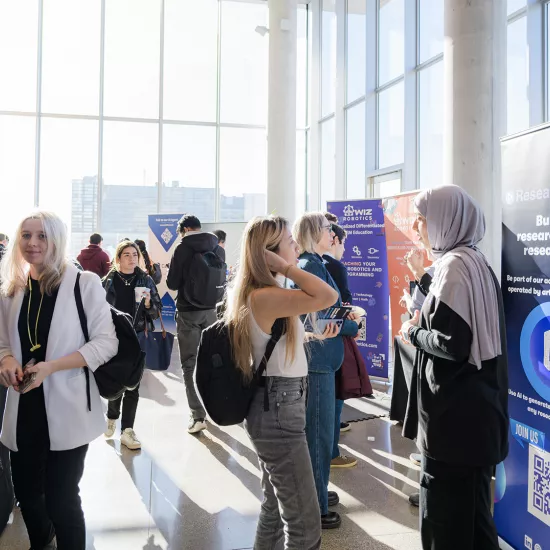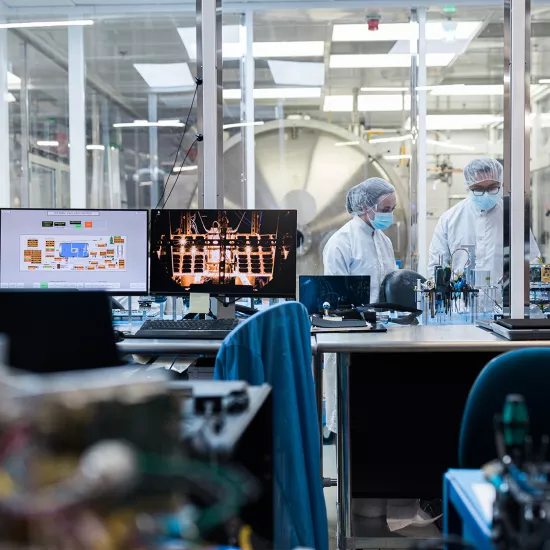Coffee on the curriculum

Harvesting coffee beans by hand may not sound like much of a vacation, but for 14 lucky U of T Mississauga students, a week spent at Central American coffee plantations was the trip of a lifetime.
The student group was part of Operation Groundswell, an eight-day tour in May that took students and their guides to Guatemala for an up-close look at how cooperative coffee plantations participate in global and local communities. The group hiked up volcanoes, helped to harvest coffee beans and learned about fair trade, ethical consumerism and sustainability from farmers and entrepreneurs involved in coffee farming collectives in Guatemala.
The tour, organized by Student Life for the Global Experience program, was led by Operation Groundswell, a travel and activism organization, co-founded by U of T alumnus David Berkal, that provides ethical and volunteer programs overseas. Dubbed “backpactivisim,” the non-profit tours are meant to create a transformative educational experience, connecting students to communities in the developing world, while supporting local tourism initiatives and non-governmental organizations. Through tours, interviews and immersion in local culture, student travellers become socially, environmentally and politically aware.
The UTM tour group stayed with local families, met with farmers involved in fair trade coffee cooperatives and other community entrepreneurs, and even heard from former guerilla revolutionaries who had traded their weapons for tools as part of a community development project.
The Global Experience tour is part of a UTM Student Life program that connects students with local and global communities through various volunteer opportunities. Closer to home, UTM students can participate in Alternative Reading Week, and spend the spring reading week working with organizations in Mississauga and Peel. In 2015, student experience teams built walls with Habitat for Humanity, taught science experiments to grade school students and made meals with a community kitchen while learning more about the organizations and the communities they serve. For both Alternative Reading Week and Global Experience students, their volunteer time also applies to their co-curricular record.
Operation Groundswell participants were eager to write about what they learned and to reflect on how their travel experience connects to their academic and personal lives.
For Bella Lai, the trip’s biggest lesson was about ethical consumerism. “I was exposed to the whole coffee bean growing process and got to know about the struggles of the Guatemalan farmers,” she says. “This has motivated me to become an ethical consumer and has encouraged me to support the Guatemalan farmers now that I am back in Canada.
Hearing directly from the people who grow the beans helped her to understand the hardships faced by coffee farmers. “The growing process is filled with sweat and tears. Our own daily cup of coffee might come from the exploitation of the people in developing countries,” she says. “I started to realize that I was am indirectly responsible for this unjust situation, and that I could also help to change it.”
Fatima Fasih, a student with UTM’s Master of Science in Sustainability Management program, remembers the trip as she sips coffee back in Canada, recalling the arduous climb up the slopes of a volcano to visit the coffee farms. “I drank coffee as comfortably as I drank water in Canada,” she says. “I learned the tedious, meticulous process—from reaping the fruit of the coffee plant to the fermenting and roasting. I had no idea this was a plant whose reaping wasn’t even mechanized yet. Each red fruit is picked by hand, then squished, sometimes by hand or sometimes by a mechanically powered bike.” Fasih was particularly interested in the personal experiences of the Guatemalan people, who have coped with a long civil war, agricultural diseases and commercialization of coffee. Learning about these issues, she says she can see parallels with other communities around the globe, including her homeland, Pakistan.
Sukhmeet Singh’s personal connections come through in the photo essay she created to express her lessons from the trip. “I started this journey thinking of it as just another school trip that would give me little break from the everyday hectic Toronto life,” she says. “But, the streets, the villages and most importantly the people of Guatemala changed my entire experience. They opened their lives, homes and hearts to us and welcomed us in as one of their own. Their faces, smiles and stories have inspired me and will remain close to me forever.” Singh was particularly interested in the personal stories of a pioneering female farmer—a rarity in the male-dominated coffee collective—and several former guerilla fighters who became coffee farmers after the end of Guatemala’s civil war. [http://engageutm.weebly.com/global-experience/category/fair-trade]
Singh says the her fellow travellers bonded over the experience. “We shared stories and bunk beds, pushed one another during the hike, carried each other’s luggage, chilled in hot springs and screamed under waterfalls, laughed and maybe even cried a little,” she says. “We walked in as strangers and walked out as one big Operation Groundswell UTM Guatemala family.”
For more about what the students learned, check out their personal reflections here >
Watch the video to see what the team did during their stay >



